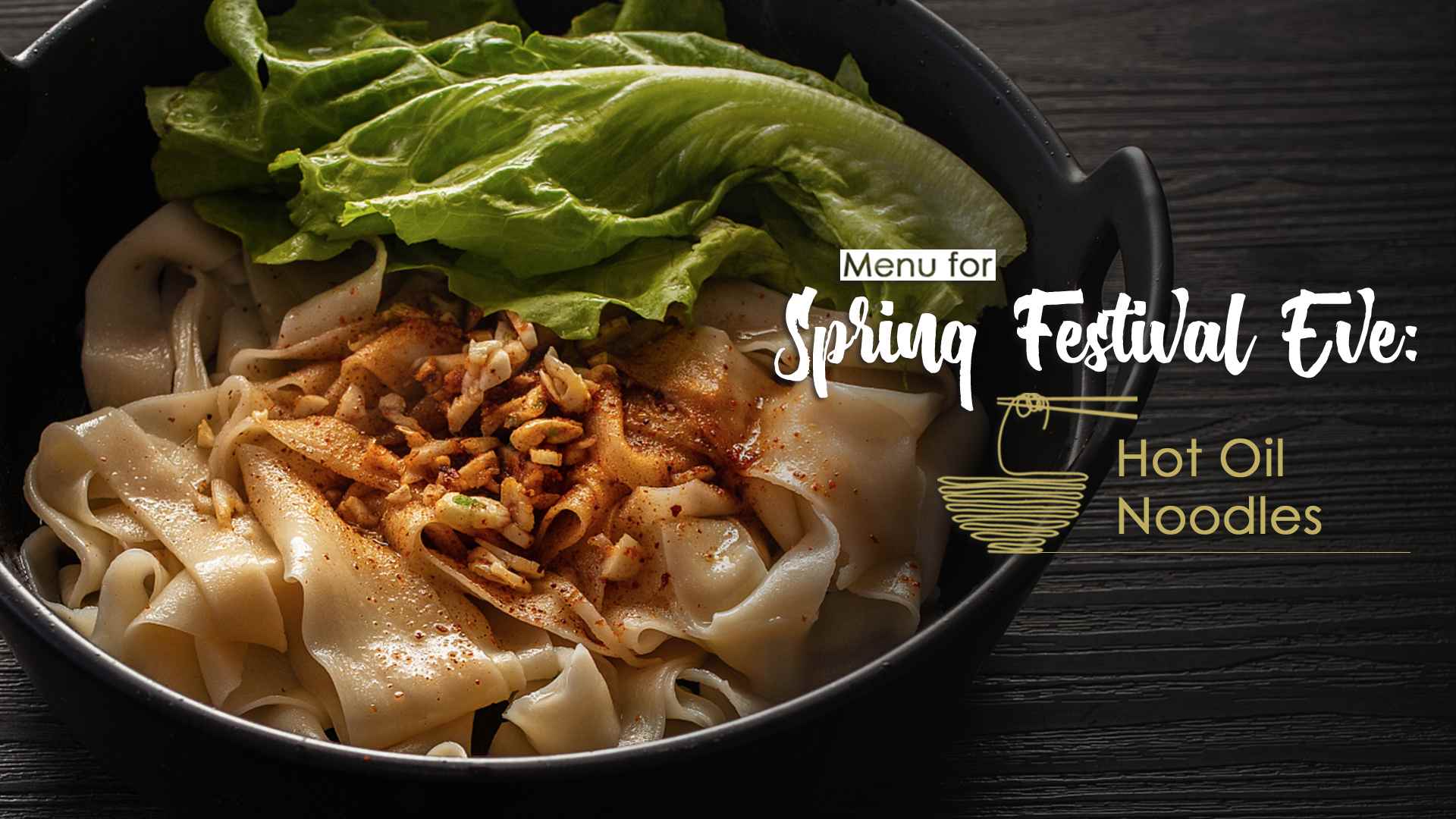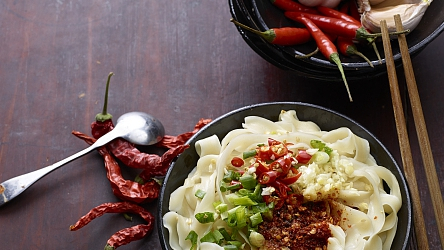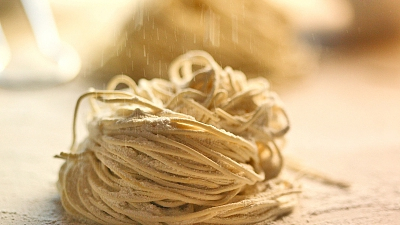
Culture
18:34, 15-Jan-2019
Menu for Spring Festival Eve: Hot oil noodles
Updated
19:37, 17-Jan-2019
By Ye Qing
01:09

The most intuitive way to understand the local customs of a place is to observe their diet and life.
Noodles are traditionally eaten during the Chinese New Year because of their shape symbolizes longevity for Chinese people.
On Spring Festival's Eve, the best tradition left to us by our ancestors is eating a bowl of noodle with your family represents longevity and reunion.

VCG Photo
VCG Photo
From restaurants to families, there are many ways to make and eat noodles, includes "Mian Pian," which translates to "flour sheet." After the Song (960–1279) and Yuan dynasties (1271–1368), people had more variety of eating noodles. Also, dried noodles that can be stored for a while were also invented.
Hot oil noodle is one of the traditional foods in Shaanxi Province. It originated from the noodle culture in the central Shaanxi plain, which started around the Spring and Autumn Period (771–476 B.C.) and the Warring States Period (475–221 B.C.).
The method of making the hot oil noodles is not complicated. Boil the hand-made "ribbon"-style noodles in boiling water and put them in a bowl. Spread the scallions, salt and chili powder on the noodles, pour the hot oil on the noodles, then, added some soy sauce and black vinegar.
This is one of those "rugged" dishes so typical of Northern China, where based on wheat-based noodles, garlic, black vinegar and plenty of dried chilies powder.

VCG Photo
VCG Photo
To make noodles, the wheat must first be processed into fine flour, while before the Western Zhou Dynasty (c. 1045–771 B.C.), China did not have many tools to deal with grain.
At that time, the ancient tools in China could only husk the grain or process it into pieces, which were difficult to grind into the fine flour.
As historical recorded, China has produced a stone mill in the Spring and Autumn Period because archaeologists in Shaanxi Province unearthed the stone mill of the Warring States Period in the Weibei Region in 1965, which proved that there was flour food in the central Shaanxi plain in the late Warring States Period.
Noodles always play an essential role in traditional food culture. On Spring Festival's Eve, residents of Shanxi and Shaanxi provinces will prepare a bowl of long and wide noodles in anticipation of good luck in the coming year. On the second day of the Spring Festival, most people of northern China always gather with family and to eat noodles.
(Head image made by Yin Yating)

SITEMAP
Copyright © 2018 CGTN. Beijing ICP prepared NO.16065310-3
Copyright © 2018 CGTN. Beijing ICP prepared NO.16065310-3